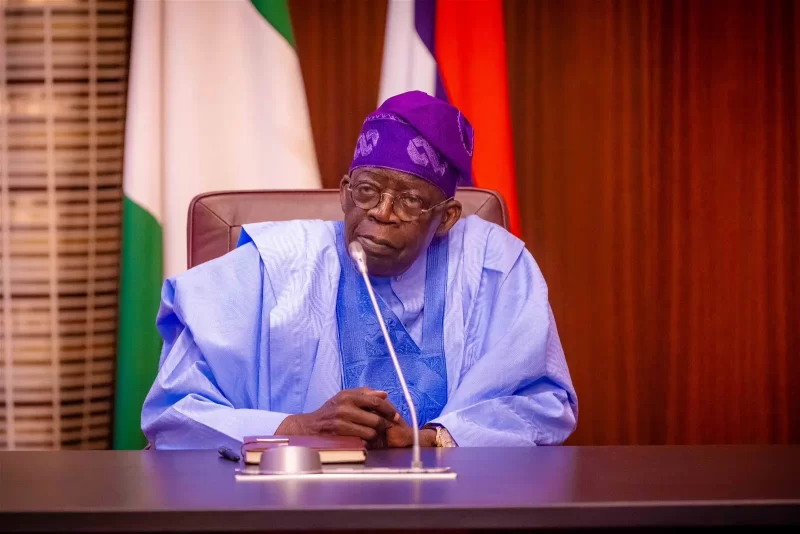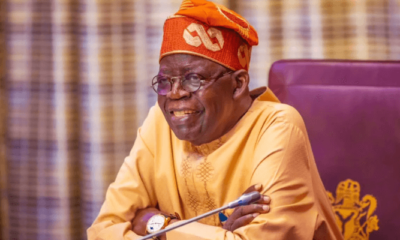National Issues
Why Tinubu Should Establish A Religious Crimes Commission -By Patrick Iwelunmor
The problem is not that Nigeria lacks laws against rape, fraud, or unlawful detention. The problem is that these laws crumble when the accused is a religious leader. Witnesses retract their testimony after “divine interventions.” Victims are shamed into silence by their own congregations. Police officers, themselves members of the flock, hesitate to investigate the shepherd. Court cases drag on until they collapse under the weight of intimidation. Impunity thrives because the state has never dared to confront the religious-industrial complex with the same vigour it shows towards petty thieves and street hawkers.

Religion in Nigeria looms over our collective life like a canopy of thunderclouds—full of promise, yet often crackling with danger. It consoles, it inspires, it organises, but it also deceives. The pulpit has become, for too many, not a sacred altar but a marketplace where gullibility is traded and power is baptised with holy water. We live in a country where pastors fly private jets while their followers trek barefoot to vigils, where prophets tighten the noose of fear around the desperate, and where the very name of God is weaponised for fraud, exploitation, and abuse.
It is time for the state to stop pretending that these crimes are isolated scandals. They are systemic, and they flourish precisely because religion, in its Nigerian expression, is a law unto itself. Victims cry in the dark because the predator is a “man of God.” Police hesitate. Prosecutors withdraw. Communities close ranks around their beloved spiritual celebrity. The Constitution guarantees freedom of worship, but it does not sanctify impunity. President Bola Ahmed Tinubu, if he is serious about strengthening our fragile institutions, must now establish a Religious Crimes Commission—an independent body empowered to investigate, expose, and prosecute those who commit crimes beneath the shadow of the cross or the crescent.
We already know the evidence. Nigerian headlines, again and again, read like a catalogue of sacrilege. A pastor arrested abroad for multimillion-dollar COVID-19 relief fraud—using his spiritual aura to cloak a scam that stretched across borders. Reports of so-called “deliverance homes” where vulnerable people—children, the mentally ill, the poor—are chained, starved, flogged in the name of driving out demons. Public allegations of sexual coercion by charismatic preachers whose moral authority silenced victims for years. These are not aberrations. They are the natural outcome of unregulated power wrapped in liturgy.
The problem is not that Nigeria lacks laws against rape, fraud, or unlawful detention. The problem is that these laws crumble when the accused is a religious leader. Witnesses retract their testimony after “divine interventions.” Victims are shamed into silence by their own congregations. Police officers, themselves members of the flock, hesitate to investigate the shepherd. Court cases drag on until they collapse under the weight of intimidation. Impunity thrives because the state has never dared to confront the religious-industrial complex with the same vigour it shows towards petty thieves and street hawkers.
Some argue that regulating religion is a slippery slope, a secular intrusion into sacred terrain. That fear is understandable, but it misses the point. Nobody proposes to dictate doctrine or edit scripture. What is demanded is simply that when rape, fraud, human trafficking, or unlawful confinement occurs under the cover of religion, it be treated as crime, not “controversy.” Religious freedom was never intended to provide sanctuary for predators. It is a freedom that flourishes only when paired with justice. To protect liberty, we must first protect life and dignity.
A Religious Crimes Commission would serve this justice by doing what ordinary agencies often cannot. It would investigate with specialised skills: financial forensics to unmask tithe-based frauds; trauma-informed methods to support witnesses who fear ostracism; expertise in the psychology of cultic control to understand how congregations are silenced. It would provide shelters for victims, protect whistleblowers, and maintain a public registry of offenders so that communities are no longer left blind. Most importantly, it would assure the nation that no man or woman, however flamboyant in robe or tongue, stands above the law.
Such a commission would not be an enemy of faith. On the contrary, it would rescue faith from its kidnappers. The overwhelming majority of pastors and prophets are decent, sacrificial men and women. They too are scandalised by the predators in their midst. For them, the Commission would be a cleansing fire, burning away impostors who exploit holy names for unholy gain. For victims, it would be a long-denied vindication that their stories matter, that their suffering is not a footnote but a national wound.
Tinubu’s presidency is already overshadowed by doubts—about the economy, about governance, about promises unfulfilled. Here lies an opportunity to assert moral clarity. By establishing a Religious Crimes Commission, he would inscribe into law a principle as old as justice itself: that the weak deserve protection and the powerful deserve accountability. He would be telling Nigerians that belief is sacred but that human dignity is more sacred still.
A nation that permits religion to be hijacked by fraudsters and predators is a nation at war with its own soul. Nigeria cannot keep mourning its victims while shielding their oppressors behind pulpits. The time for timid whispers is over. Tinubu must act, and act boldly. The altar must no longer be a hiding place for crime. If Nigeria is to reclaim its conscience, the law must step into the sanctuary. To do nothing is to side with the exploiters. To act is to restore faith not only in religion but in the Republic itself.








